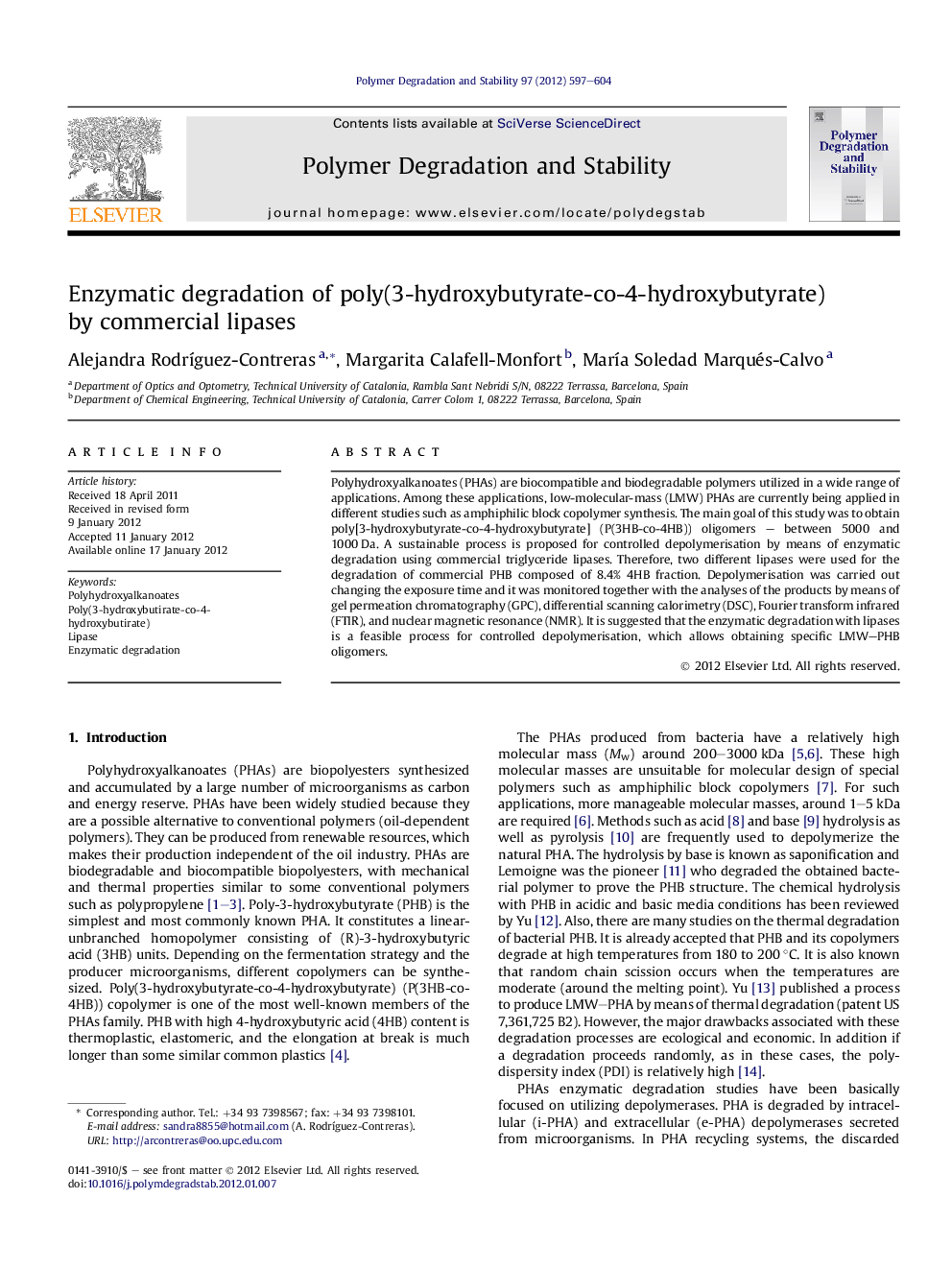| Article ID | Journal | Published Year | Pages | File Type |
|---|---|---|---|---|
| 5202955 | Polymer Degradation and Stability | 2012 | 8 Pages |
Polyhydroxyalkanoates (PHAs) are biocompatible and biodegradable polymers utilized in a wide range of applications. Among these applications, low-molecular-mass (LMW) PHAs are currently being applied in different studies such as amphiphilic block copolymer synthesis. The main goal of this study was to obtain poly[3-hydroxybutyrate-co-4-hydroxybutyrate] (P(3HB-co-4HB)) oligomers - between 5000 and 1000Â Da. A sustainable process is proposed for controlled depolymerisation by means of enzymatic degradation using commercial triglyceride lipases. Therefore, two different lipases were used for the degradation of commercial PHB composed of 8.4% 4HB fraction. Depolymerisation was carried out changing the exposure time and it was monitored together with the analyses of the products by means of gel permeation chromatography (GPC), differential scanning calorimetry (DSC), Fourier transform infrared (FTIR), and nuclear magnetic resonance (NMR). It is suggested that the enzymatic degradation with lipases is a feasible process for controlled depolymerisation, which allows obtaining specific LMW-PHB oligomers.
